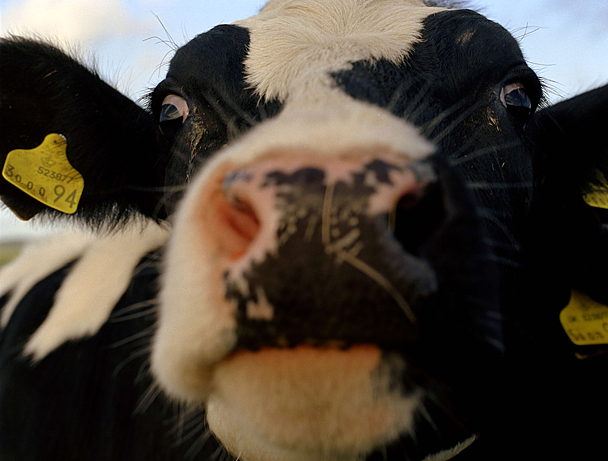Here’s a novel idea: Only administer powerful antibiotics to farm animals when they actually need them.
Last week, United States Congresswoman Louise Slaughter (D-NY—and I won’t sink to making a snide comment about her surname) introduced legislation that would restrict the use of seven classes of antibiotics to cases where an animal is sick. The medicines include penicillins, tetracyclines, sulfa drugs, and any other drug that is also used to treat bacterial infections in humans. Currently, farmers routinely feed antibiotics to perfectly healthy animals because the drugs speed up growth and improve the efficiency with which the animals covert feed to body mass. Prescriptions are not required.
Slaughter’s bill, the Preservation of Antibiotics for Medical Treatment Act comes in the wake of a growing body of research indicating that the willy-nilly feeding of antibiotics to animals leads to the evolution of drug-resistant microbes.
These “superbugs” can migrate from hog farms, hen houses, and cattle feedlots to infect people. In a particularly upsetting discovery last year, a group of University of Iowa researchers found that methicillin-resistant Staphylococcus aureus (MRSA), a “flesh-eating” bacterium that kills 18,000 Americans every year, was present in 49 percent of the pigs they tested on ten farms in Iowa and Illinois. This month, scientists at Johns Hopkins University reported that drug-resistant bacteria could hitch rides on houseflies from chicken facilities to human homes.
According to Slaughter, who was a microbiologist before entering politics, more than 80 percent of factory hog farms and cattle feedlots “administer antimicrobials in feed or water for health and growth-promotion reasons.” Something close to 70 percent of the total antibiotics used in the United States are consumed by healthy farm animals.
Organizations such as the American Medical Association and the American Public Health Association have lined up behind the bill, saying that it will preserve the effectiveness of medically important drugs. But powerful agricultural groups are solidly against it. “This is irresponsible legislation,” National Pork Producers Council president Don Butler told the trade website Meat and Poultry. “We are committed to maintaining the well-being of our animals, and we need access to a range of animal health products to keep our pigs healthy and, in turn, produce safe food products. This bill will prevent that, and we’ll see more pigs die and higher production costs—and that means consumers will pay more for pork.”
“It will really come down to whether members of Congress want to protect their constituents or agribusiness” Slaughter told Rueters.
Unfortunately, Congress, which has had no problems passing strict laws governing the dispensing of antibiotics to humans, has a bad record on the animal front. Similar bills have been put forward several times over the past couple of decades. In every case, factory pork farmers have won out over public health.




 Pinterest
Pinterest


